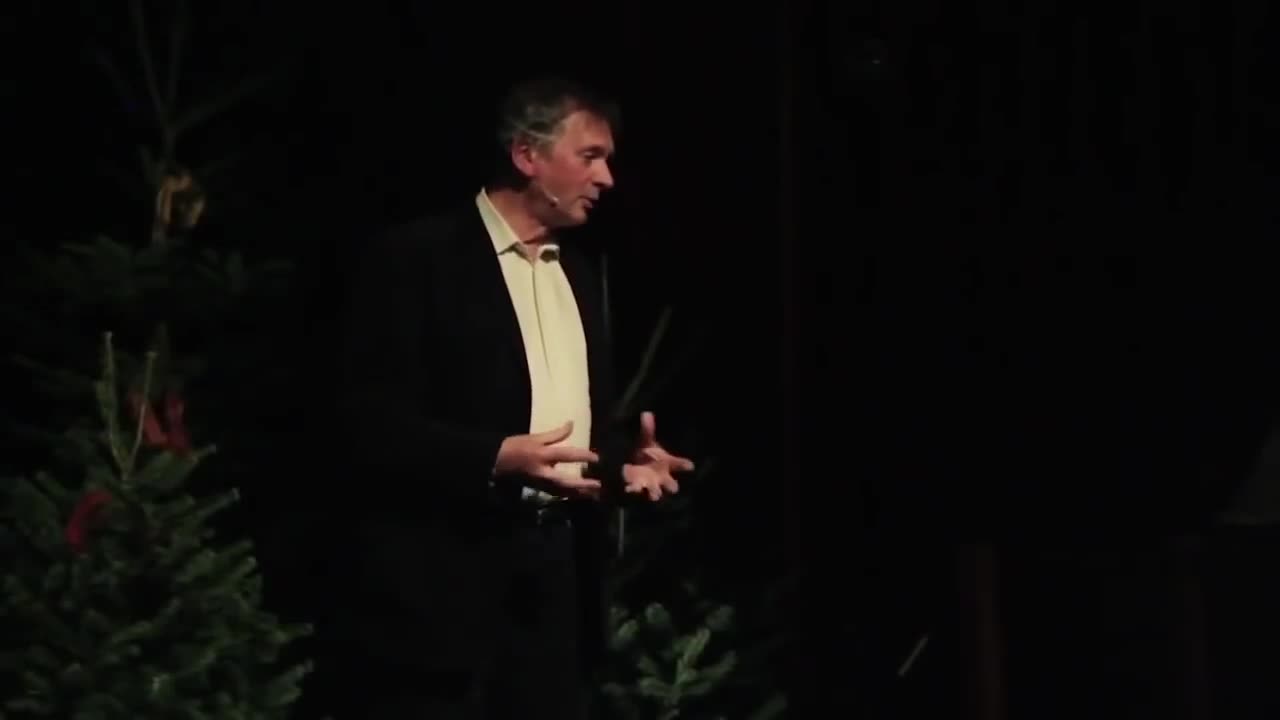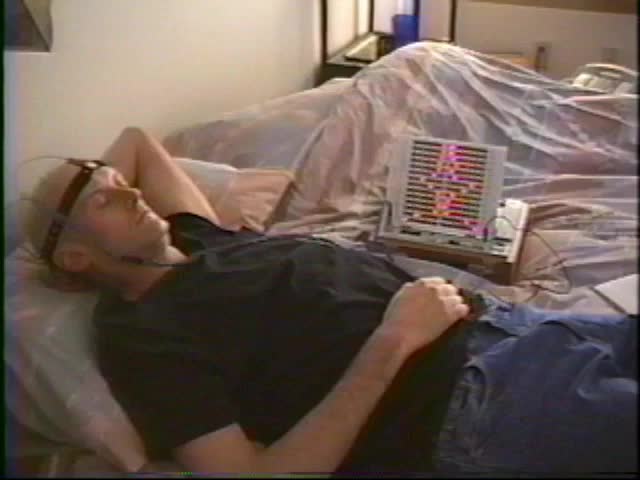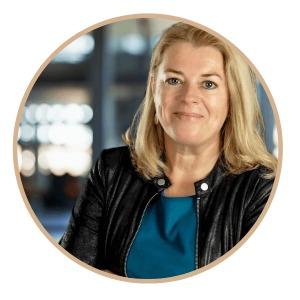CAPTION
It presses on a fundamental question How do professionals get better at what they do Howdo they get Great And there are two views about this One is the traditional pedagogical view that is thatyou go to school you study you practice you learn you graduate and then you goout into the world and you make your way on your own A professional is someone who iscapable of managing their own improvement That is the approach that virtually all professionals have learned by That's howdoctors learn that's how lawyers do scientists musicians And the thing is it works consider for example the legendary Juilliardviolin instructor Dorothy Delay She trained an amazing roster of violin virtuosos Mari Sarah ChangItzhak Perlman Each of them came to her as young talents and they worked with her over yearsWhat she worked on most she said was inculcating in them habits of thinking and of learning so thatthey could make their way in the world without her when they were done Now thecontrasting view comes out of sports and they say you are never done Everybody needs acoach everyone the greatest in the world Needs a coach So I tried to thinkabout this as a surgeon pay someone to come into my operating room observe me and critiqueme It seems absurd Expertise means not needing to be coached So then which view is right Idecided to ask of all people Itzhak Perlman He had trained the Dorothy delay way and became arguablythe greatest violinist of his generation So we ended up having an almost two hour conversation about how he gotto where he got in his career And I asked him I said why don't violinists have coaches Andhe said I don't know but I always had a coach You always had acoach Oh yeah it was crucial to everything he became He said turns out there are numerous problems in makingit on your own You don't recognize the issues that are standing in your way or if you doyou don't necessarily know how to fix them And the result is that somewhere alongthe way you stop improving And I thought about that and I realized that was exactly what hadhappened to me as a surgeon I'd entered practice in 2003 And for the first several years it wasjust this steady upward uh improvement in my learning curve II I watched my complicationrates drop from one year to the next And after about five years they leveled out And a few moreyears after that I realized I wasn't getting any better anymore And I thought is this asgood as I'm gonna get So I thought a little more and I said ok I'll try acoach After two months of coaching I felt myself getting better again And after a year I sawmy complications drop down even further It was painful and at times I didn't want tohave to work on things I also felt there were periods where I would get worsebefore I got better But it made me realize that the coaches were on tosomething profoundly important
CAPTION TRANSLATED TO
ENGLISH LANGUAGE
It presses on a fundamental question How do professionals get better at what they do Howdo they get Great And there are two views about this One is the traditional pedagogical view that is thatyou go to school you study you practice you learn you graduate and then you goout into the world and you make your way on your own A professional is someone who iscapable of managing their own improvement That is the approach that virtually all professionals have learned by That's howdoctors learn that's how lawyers do scientists musicians And the thing is it works consider for example the legendary Juilliardviolin instructor Dorothy Delay She trained an amazing roster of violin virtuosos Mari Sarah ChangItzhak Perlman Each of them came to her as young talents and they worked with her over yearsWhat she worked on most she said was inculcating in them habits of thinking and of learning so thatthey could make their way in the world without her when they were done Now thecontrasting view comes out of sports and they say you are never done Everybody needs acoach everyone the greatest in the world Needs a coach So I tried to thinkabout this as a surgeon pay someone to come into my operating room observe me and critiqueme It seems absurd Expertise means not needing to be coached So then which view is right Idecided to ask of all people Itzhak Perlman He had trained the Dorothy delay way and became arguablythe greatest violinist of his generation So we ended up having an almost two hour conversation about how he gotto where he got in his career And I asked him I said why don't violinists have coaches Andhe said I don't know but I always had a coach You always had acoach Oh yeah it was crucial to everything he became He said turns out there are numerous problems in makingit on your own You don't recognize the issues that are standing in your way or if you doyou don't necessarily know how to fix them And the result is that somewhere alongthe way you stop improving And I thought about that and I realized that was exactly what hadhappened to me as a surgeon I'd entered practice in 2003 And for the first several years it wasjust this steady upward uh improvement in my learning curve II I watched my complicationrates drop from one year to the next And after about five years they leveled out And a few moreyears after that I realized I wasn't getting any better anymore And I thought is this asgood as I'm gonna get So I thought a little more and I said ok I'll try acoach After two months of coaching I felt myself getting better again And after a year I sawmy complications drop down even further It was painful and at times I didn't want tohave to work on things I also felt there were periods where I would get worsebefore I got better But it made me realize that the coaches were on tosomething profoundly important
CAPTION TRANSLATED TO
GERMAN LANGUAGE
Es geht um die grundlegende Frage: Wie werden Profis in dem, was sie tun, besser?Werden sie großartig? Und dazu gibt es zwei Ansichten. Die eine ist die traditionelle pädagogische SichtweiseDu gehst zur Schule, du lernst, du übst, du lernst, du machst deinen Abschluss und dann gehst duRaus in die Welt und du gehst deinen Weg auf eigene Faust. Ein Profi ist jemand, der es istin der Lage, ihre eigenen Verbesserungen zu bewältigen. Das ist der Ansatz, den praktisch alle Fachleute von That's how gelernt habenÄrzte lernen so, wie es Anwälte tun, Wissenschaftler, Musiker. Und die Sache ist, dass es funktioniert, denken Sie zum Beispiel an den legendären JuilliardGeigenlehrerin Dorothy Delay Sie bildete eine erstaunliche Liste von Geigenvirtuosen Mari Sarah Chang ausItzhak Perlman Jeder von ihnen kam als junge Talente zu ihr und arbeitete über Jahre mit ihr zusammenWie sie sagte, habe sie vor allem daran gearbeitet, ihnen Denk- und Lerngewohnheiten beizubringenAls sie fertig waren, konnten sie ohne sie ihren Weg in die Welt findenEine gegensätzliche Sichtweise kommt aus dem Sport und man sagt, dass man nie fertig ist. Jeder braucht eineJeder ist der Größte auf der Welt. Braucht einen Trainer. Also versuchte ich nachzudenkendarüber, wie ein Chirurg jemanden dafür bezahlt, in meinen Operationssaal zu kommen, mich zu beobachten und zu kritisierenMir erscheint es absurd. Fachwissen bedeutet, nicht gecoacht zu werden. Welche Ansicht ist dann richtig? Ichbeschloss, von allen Leuten Itzhak Perlman zu fragen. Er hatte die Dorothy-Verzögerungsart trainiert und wurde wohl zu Rechtder größte Geiger seiner Generation. Am Ende führten wir ein fast zweistündiges Gespräch darüber, wie es ihm ergangen istWo ist er in seiner Karriere angekommen? Und ich habe ihn gefragt, warum Geiger keine Trainer haben. UndEr sagte, ich weiß es nicht, aber ich hatte immer einen Trainer. Du hattest immer einenTrainer Oh ja, es war entscheidend für alles, was er wurde. Er sagte, es stelle sich heraus, dass es zahlreiche Probleme gebeEs auf eigene Faust Sie erkennen nicht die Probleme, die Ihnen im Weg stehen, oder wenn Sie es tunSie wissen nicht unbedingt, wie Sie sie beheben können. Und das Ergebnis ist, dass es irgendwo weitergehtdie Art und Weise, wie man aufhört, sich zu verbessern. Und ich dachte darüber nach und mir wurde klar, dass genau das der Fall warDas passierte mir als Chirurg, als ich 2003 in die Praxis eintrat. Und in den ersten Jahren war das auch soNur diese stetige Verbesserung meiner Lernkurve II. Ich habe meine Komplikation beobachtetDie Zinsen sinken von Jahr zu Jahr, und nach etwa fünf Jahren haben sie sich stabilisiert. Und noch ein paar mehrJahre später wurde mir klar, dass es mir nicht mehr besser ging und ich dachte, das ist soSo gut, wie ich es bekommen werde. Also habe ich noch ein wenig nachgedacht und gesagt, ok, ich werde es mit einem versuchenTrainer Nach zwei Monaten Coaching spürte ich, wie es mir wieder besser ging. Und nach einem Jahr sah ich esMeine Komplikationen gingen noch weiter zurück. Es war schmerzhaft und manchmal wollte ich es nichtIch musste an Dingen arbeiten. Ich hatte auch das Gefühl, dass es Phasen gab, in denen es mir schlechter gehen würdebevor es mir besser ging. Aber es machte mir klar, dass die Trainer dran warenetwas zutiefst Wichtiges
CAPTION TRANSLATED TO
DUTCH LANGUAGE
Het dringt aan op een fundamentele vraag Hoe worden professionals beter in wat ze doen Hoeworden ze geweldig En daar zijn twee opvattingen over. De ene is de traditionele pedagogische kijk, dat is datje gaat naar school je studeert je oefent je leert je studeert af en dan ga jede wereld in en je baant je eigen weg Een professional is iemand die dat isin staat om hun eigen verbetering te managen Dat is de aanpak die vrijwel alle professionals van That's how hebben geleerddoktoren leren zo doen advocaten wetenschappers muzikanten En het punt is dat het werkt, denk bijvoorbeeld aan de legendarische Juilliardvioolinstructeur Dorothy Delay Ze trainde een verbazingwekkende selectie vioolvirtuozen Mari Sarah ChangItzhak Perlman Elk van hen kwam naar haar toe als jonge talenten en ze werkten jarenlang met haar samenWaar ze het meest aan werkte, zei ze, was hun denk- en leergewoonten bijbrengenze zouden zonder haar hun weg in de wereld kunnen vinden als ze klaar warencontrasterende kijk komt uit sport en ze zeggen dat je nooit klaar bent Iedereen heeft eencoach iedereen de grootste ter wereld Heeft een coach nodig Dus ik probeerde na te denkenhierover als een chirurg iemand betaalt om in mijn operatiekamer te komen, mij te observeren en te bekritiserenmij Het lijkt absurd Deskundigheid betekent niet gecoacht hoeven te worden Welke mening is dan de juiste ikbesloot Itzhak Perlman van alle mensen te vragen. Hij had de Dorothy-achterweg getraind en werd aantoonbaarde grootste violist van zijn generatie. Uiteindelijk hadden we een bijna twee uur durend gesprek over hoe het met hem gingnaar waar hij in zijn carrière was gekomen. En ik vroeg hem. Ik zei waarom violisten geen coaches hebben. Enhij zei ik weet het niet, maar ik had altijd een coach, jij had altijd eencoach Oh ja, het was cruciaal voor alles wat hij werd. Hij zei dat blijkt dat er tal van problemen zijn bij het makendoe het zelf Je herkent de zaken niet die je in de weg staan of als je dat wel doetje weet niet noodzakelijkerwijs hoe je ze moet repareren en het resultaat is dat ergens langsde manier waarop je stopt met verbeteren En ik dacht daarover na en realiseerde me dat dat precies was wat er wasoverkwam mij als chirurg. Ik kwam in 2003 in de praktijk. En de eerste paar jaar was dat zoalleen deze gestage opwaartse verbetering in mijn leercurve II Ik keek naar mijn complicatiede tarieven dalen van het ene jaar op het andere en na ongeveer vijf jaar stabiliseerden ze zich en nog een paarjaren daarna besefte ik dat het niet meer beter met me ging. En ik dacht is dit zogoed als ik ga krijgen Dus ik dacht een beetje meer en ik zei oké, ik zal een proberencoach Na twee maanden coaching voelde ik mezelf weer beter worden. En na een jaar zag ik hetmijn complicaties dalen nog verder. Het was pijnlijk en soms wilde ik het nietIk moest aan dingen werken Ik voelde ook dat er periodes waren waarin ik slechter zou wordenvoordat ik beter werd Maar het deed me beseffen dat de coaches door wareniets heel belangrijks
 00:03:51
00:03:51
 00:18:19
00:18:19
 00:10:10
00:10:10
 Suzanne Tempel
Suzanne Tempel
![]()